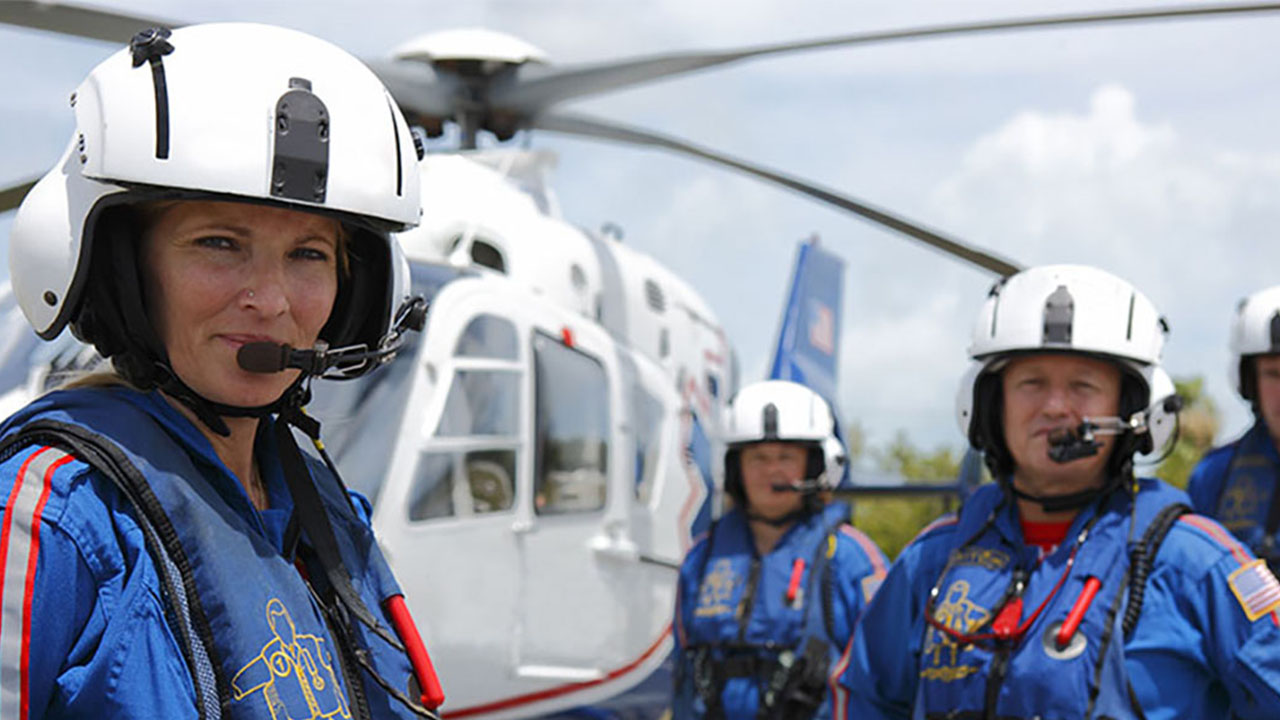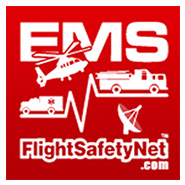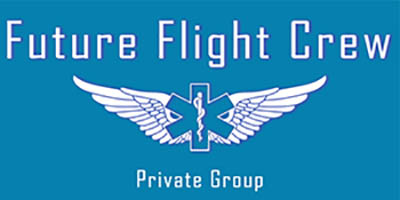Say What You Mean, Mean What You Say
Sounds easy, right?
And it is. Until….
Your life depends on it.
And until the lives of your patient, pilot and partner depend on it too.
Imagine the terror of seeing another aircraft on a collision course with your own.
The next three seconds are very important.
A lot needs to happen….
Your message needs heard, understood and acted upon immediately. And of course you need to create the message too.
You probably already guessed flight crews encounter this type of situation routinely. What you may not know is the rest of EMS Flight Safety Network faces similar challenges. The firefighter setting up the helicopter landing zone can’t always communicate with the pilot on the inbound helicopter.
The flight communication specialist who needs to pass critical patient information to the receiving medical command doesn’t always have an open line.
The EMT passing patient report from the back of an ambulance does so (at times) under extremely challenging conditions. The hospital security guard who gets notification a trauma helicopter is landing on the hospital roof and needs offload assistance – in two minutes!
The list of critical communication situations for EMS Flight Safety Network goes on and on.
All demand attention. All require immediate action.
The Glue that Holds EMS & Air Medical Together
So how do EMS Flight Safety Network professionals make it look so easy?
One way is through effective communication. This article explains the three keys to effective communication. What I call the ABC’s of effective crew communication.
The ABCs of Effective Communication
[images style=”2″ image=”http%3A%2F%2Fflightsafetynet.com%2Fwp-content%2Fuploads%2F2010%2F10%2FABC-300×291.png” width=”300″ align=”left” top_margin=”0″ bottom_margin=”25″ right_margin=”25″ full_width=”Y”]
What are the ABCs of effective communication?
Put simply…
Accurate. Bold. Concise.
Let’s take a closer look at the ABCs of effective communication by way of real-world examples.
What is the best response to the scenario above? What exactly do you say when you see an aircraft approaching fast at the same altitude?
You fall back on your ABCs – Accurate, Bold, and Concise communication that gets immediate results.
Here is an example:
Aircraft! 12 O’Clock! Same Altitude! Turn Left Now!
Do you see what happened there?
Because it’s really important.
I got your attention.
I got everyone’s attention on board the aircraft. You can hear (and feel) the sense of urgency in my voice. You know it’s important.
Then I followed the ABCs of effective crew communication.
Accurate
What does accurate mean in the context of effective crew communication?
A couple things…
First, accuracy requires your statement to stand alone. No feedback is required.
Accuracy is not a kum-bay-yah, team-building, feel-good type moment. Accuracy is about results. Accuracy doesn’t need a hug. Accuracy doesn’t need to be friends with the pilot on facebook. Accuracy simply demands the pilot react and do exactly what you’re saying. Right now!
The only way this immediate reaction can happen is if your statement is delivered with surgical-strike accuracy.
So how do you do it?
First, relax and don’t worry. If you’re currently an Um & Ahh type guy or gal. The accuracy communication technique is teachable, and therefore, trainable.
You can do it.
I can fix you.
I may not turn you into Joe Dragnet, who only deals in black and white, just-the-facts, reality. But that’s not the goal, right? The idea is to develop a communication skill you can pull out of your crew toolbox and use on demand. You don’t ever want to remove your compassion or humanity from EMS Flight Safety Network careers. But you do want (and need) a tool that commands and gets immediate results whenever you need it.
That’s what accurate communication can do for you.
Bold
What does bold mean in the context of effective crew communication?
Bold is about getting and keeping people’s attention.
Bold is tied to your personal confidence level.
Can you be bold and respectful at the same time? Of course. What pilot isn’t going to thank you for diverting tragedy and saving their own life? None that I know. None that you would want to fly with again, right?
Once you gain experience and develop confidence as a professional flight nurse, flight medic, firefighter, EMT, hospital security – whatever your chosen EMS Flight Safety Net career path is, bold communication will quickly and easily follow your own confidence level.
Bold is also teachable and trainable. So again, no worries if your personality is different than bold. Some of the best and brightest crew I’ve ever flown with were shy introverts who simply developed their communications skills. They developed crew communication like any other skill they needed to succeed as a flight nurse, flight medic or EMS pilot.
Successful crew don’t try to change themselves. You shouldn’t either.
Successful crew approach bold communication the same way they approach all skills required to do their jobs effectively. Bold communication, like any other skill, requires practice and repetition to perfect.
Concise
What does concise mean in the context of effective crew communication?
No secrets here.
It means exactly what you think it means. Shorter is better when it comes to crew communication. Less words are always preferred.
We all know the guy or gal who gets on an emergency radio and simply will not stop talking. Don’t be that guy or gal. And…. go one step further. Try to help that guy or gal.
Take a minute to explain some of the challenges you overcame as a new EMT, Paramedic, Nurse, Pilot, etc, when talking on the radio. It might be as simple as pausing for a moment to collect your thoughts before starting to speak. Or as simple as moving the microphone a little closer or further away from their mouth.
Be a pro, take a moment, find out what the real issue is, and help the person. They’re on your team.
Practice Your ABCs
How do you improve your own communication skills?
In a word, practice.
Give yourself practice scenarios in front of a mirror and practice exactly what you would say in each scenario. It sounds a little hokey, and may feel a bit awkward at first.
Get over the awkwardness. Remind yourself the reason you’re practicing is to potentially save your own life and the lives of your team. You can bear a little initial awkwardness for the safety of your team. Plus, over time you’ll see it gets much easier. The hokey feeling leaves and your left with increased confidence.
Remember, effective crew communication is a skill. A skill that can be practiced and improved. Practice your ABCs – Accurate, Bold, and Concise communication regularly for results.
[divider style=”9″]
Interested in learning more about how to get started as a Flight RT, Flight Medic, Flight Nurse or EMS Pilot?
Join our Future Flight Crew Private Facebook Group. Answer 3 simple questions to join, takes less than a minute.
CLICK THE BANNER to Sign Up:
[arrows style=”arrow-red-11.png” align=”left”]




4 replies to "The ABCs of Effective Crew Communication"
I think that’s why we took Communications in college.
Vicki,
Crew communication adds a sense of urgency you probably didn’t experience in a college communications class. Like most things, it’s different in the real world. Thanks for commenting.
Clear Skies & Tailwinds
Unfortunately we didn’t take Internet communication bc I went to college in 1998 when none of social media existed.
Vicki,
Communicating well is a skill. Social media is just the latest and greatest medium for communication. The article gives you a real world example to study and practice. I hope it helps you. Thanks for commenting.
Clear Skies & Tailwinds